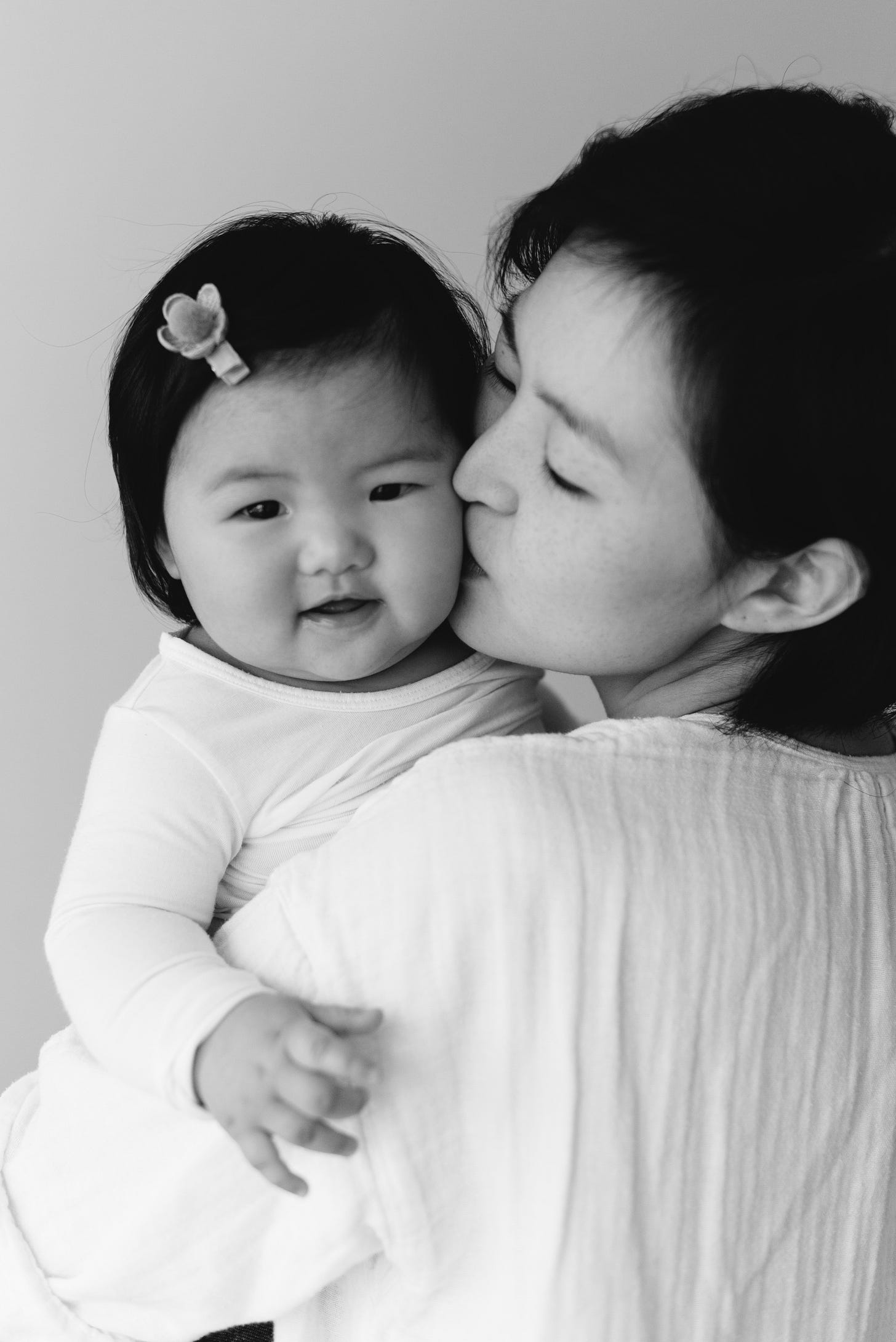Chinese > English > Korean
On my daughter losing her native language; or, the power dynamics of mother tongues
My daughter has three native languages. (If we include dialect, she has 3.5.) H was born in 2019 here in Shanghai, and from the get go she was surrounded by Korean, English, Chinese, and Shanghainese.
However, her mother tongue, if we use that term literally, is Korean. It is the language I alone spoke with her, and up until she was about two years old, it was her best and primary language. There are several reasons for this: 1) I did not have a nanny, 2) My in-laws were more hands off, 3) Dad was busy with his start-up. So my daughter and I were surrounded by Chinese culture, living in Shanghai, and yet we babbled and cooed and sang to one another in Korean; we spoke “dog,” “cat,” “mom,” “love,” all the basics, the essentials, in Korean. We were in a little Korean bubble, she and I, for a little over a year.
How privileged I felt, then, to be able to understand every word she said when she began to speak her mixed language of Korean/Chinese/English. There were a couple of exceptions, a few Korean girlfriends who have lived in China for many years and who, like me, speak the three to various degrees of fluency. They, too could understand H, and I saw that my daughter lit up when interacting with them - like umma, they just got her. My husband felt a mixture of pride and despair that he was unable to understand his young daughter, to know her world.
But now, the tables have turned.
It was a slow transition. Around one year, we employed a nanny so that I could get back to work, and so that I could get a break. With nanny, H spoke Chinese, and between the ages of 1 and 2, Chinese quickly caught up to Korean. By 2, she was speaking both evenly well, though I think it would be fair to say that she still preferred Korean.
At home, she’s always heard mom and dad speak to one another in English, although no one ever explicitly spoke to her in English. When she started her bilingual English/Chinese nursery at 2.5 years old, her English just skyrocketed. It’s all she wanted to speak at home. She said it was her favorite language. (And she said it with a bit of an English accent - her foreign teacher at school is British.) Around this time, her Korean started to fall behind. We also had our second child, grandma moved in with us, and we switched to a live-in nanny.
Our household doubled in size; the Chinese-speaking contingent became the majority.
Now, at 3 years old, H speaks almost exclusively in Chinese, occasionally in English. Her Chinese is much better than mine; when she speaks to me I sometimes have to ask her Can you say that in English or Korean? - at which point she will translate for me. Her language ability has just outpaced mine dramatically. I’m left in the linguistic dust.
I couldn’t be happier that H is becoming fluent in Chinese and English. These are important, powerful languages to have. But I now feel that ambivalent pride/despair that her father once felt in not being able to comprehend her world through her preferred language. I want to keep up, perhaps to take up Chinese language study again, but I know that she will always be running far ahead of and away from me. That is the way of children.
If I’m being honest, I also feel a worry that H might lose her Korean identity, siding with her Chinese heritage. Given the relative power and size of the two countries, the usefulness of the two languages, the structure of our household, and where we live, it feels like a sisyphean task to try to uphold Korean as the mother tongue. Yes, it is her mother’s mother tongue. I feel an allegiance, a connection to those sounds, those boxy alphabetical shapes. But will she? Or will it end up a mere echo of her early infancy?
With my second child, I feel less of this. I think, perhaps, it is because M is a boy, and as a boy I see less of myself in him, or project less of my identity onto him. Perhaps I even want him to be more like his father, his father’s language - more masculine, more powerful. Maybe I see language identity as gendered.
I know there are things I can do to maintain Korean language and “my” culture - both American and Korean (though I worry less about American culture losing out, American culture being as powerful as it is and given that H is legally American). And I will try to do them: in the future post-Covid, long trips to Korea; long trips with maternal grandma who will speak to them in her grand-mother’s tongue; Korean food; Korean books and shows.
For now I will try my best to keep up with my daughter, but also, as ever, to learn from her - a new language, her language, who she chooses to be.






Great essay! I can relate as my kids are also being raised in a bilingual household here in shanghai. When they grow up they will be amazingly thankful that they were given the opportunity and environment to become perfectly fluent in two or even three languages. These are rare and precious gifts
God, if we only had a fraction of the neuroplasticity of them babies. It must be astounding to witness her pick up all three languages so quickly!